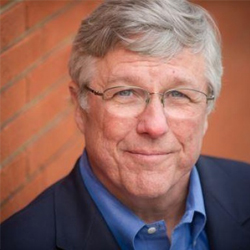GAP President John Dwyer says aducanumab offers disease-modifying benefit significantly exceeding current therapies
Contact: Pamela Larkin, 408-466-5952, pamelalarkin@rational360.com
Washington, DC (November 6, 2020) – Today, the President of the Global Alzheimer’s Platform Foundation® (GAP), John Dwyer, testified before the FDA’s Peripheral and Central Nervous System Drugs Advisory Committee regarding Biogen’s breakthrough Alzheimer’s drug aducanumab. Given that clinical trial data of aducanumab showed significant effectiveness in treating Mild Cognitive Impairment and that this patient group has no other therapeutics available, Dwyer urged that the committee recommend FDA approval. Dwyer’s full testimony to the committee is below.
“My name is John Dwyer. I am a Co-Founder and President of the Global Alzheimer’s Platform Foundation, a non-profit, patient advocacy organization dedicated to speeding the discovery and delivery of therapies to patients stricken by Alzheimer’s disease. Our mission is funded by many of the world’s leading philanthropies and pharmaceutical companies active in the ad field—including Biogen.
I am also a son, nephew and cousin of over a dozen family members who are suffering with or who have died from Alzheimer’s. I am currently involved in assisting with the care of three individuals who have been diagnosed with Mild Cognitive Impairment (MCI); one person has early onset.
On behalf of the millions of patients whose health and welfare hang on this body’s deliberations, we urge the committee to recommend the approval of aducanumab for patients with MCI and mild Alzheimer’s disease. There are several compelling reasons that support approval.
Patients with mild Alzheimer’s disease have not been afforded a new approved therapy in over 17 years. It is fair to say no other disease of Alzheimer’s scale and mortality has gone so long without incremental therapeutic relief. And speaking from substantial personal experience caring for my family, the existing approved drugs offer fleeting or no real relief in addressing the symptoms of mild Alzheimer’s disease. Aducanumab is a breakthrough therapy that offers disease modifying benefit significantly exceeding current therapies.
Patients with Mild Cognitive Impairment are even more therapeutically orphaned. There is no approved therapy for patient’s diagnosed with MCI. Millions of patients, many of whom are victims of early onset, receive this devastating diagnosis without access to an FDA approved therapy tested and measured for fitness for their condition. Approving this drug will offer hope, catalyze advanced blood tests and encourage diagnosis of the disease earlier and more effectively. And frankly, by definition, aducanumab merits approval for MCI: it demonstrated significant effectiveness in treating a condition that afflicts millions of Americans that have no alternative therapy.
Aducanumab delivers real improvements in patients’ quality of life. This therapy significantly slowed decline in six critical clinical aspects of Alzheimer’s patents’ lives, including cognition and functional independence. Practically speaking, it offers ad patients the most precious of benefits—more time. More time to love their family, to live their lives, and to not be a burden. There is nothing MCI and mild Alzheimer’s patients and their families value more than time—ask anyone who has lost someone they loved – twice – to this insidious disease.
In conclusion, aducanumab offers real clinical benefit to millions of Alzheimer’s patients who currently are devoid of a meaningful therapy. We strongly encourage the committee to recommend its approval. Thank you.”
About the Global Alzheimer’s Platform Foundation (GAP)
The Global Alzheimer’s Platform Foundation® (GAP) is a patient-centric nonprofit dedicated to accelerating the delivery of innovative therapies for neurological disorders by reducing the duration and cost of clinical trials. Research centers across the US and Canada are part of the growing GAP Network (GAP-Net). GAP supports GAP-Net research centers by assisting with study start up and recruitment activities, promoting diversity in research studies, and offering national programs that champion brain health and the citizen scientists who make research possible.
